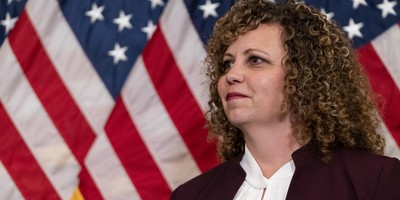"Rate hikes and late fee traps have to end. No more fine print, no more confusing terms and conditions", said President Obama last week when advocating another big-government solution -- this time to evils committed by credit-card companies.
Credit cards are a demagogue's dream come true. What better way to win public affection than to rail against banks for their harsh terms? In the politicians' morality play, creditors are the villains and debtors their helpless victims.
A little context first: No one has a natural right to a credit card. Someone has to be willing to undertake the risk in issuing it. Banks issue cards in their quest for profits. Nothing wrong with that.
Think about what a credit card is. It's convenient access to unsecured loans, permitting consumers to buy things large and small -- not to mention emergency services -- without cash. Pay the bill promptly, and you enjoy a fantastic service for virtually nothing. If circumstances prevent you from paying the bill in full, you can set your own payment schedule, realizing there is a minimum payment and that you will be charged interest on the unpaid balance. No surprise there.
To appreciate credit cards, it is worth recalling that before they came along, people got personal loans from banks, finance companies, pawnshops and loan sharks. Such loans were less convenient, and repayment was less flexible. Some people bought things on layaway, which meant they didn't take the goods home until they were paid for. Loan sharks sometimes broke people's legs.
Credit cards didn't create consumer debt -- they are merely a superior alternative to older methods.
Recommended
As President Obama and other politicians demagogue this issue, keep two things in mind: Life would be more difficult without credit cards, and banks don't have to keep issuing them. Be careful what you ask for.
Politicians are too short-sighted and vote-hungry to say such things. They want a "credit card holders' bill of rights" that would prohibit certain billing practices, like raising interest rates on existing balances. The House could approve the "bill of rights" this week.
Understandably, these billing practices endear themselves to no one, but competition makes the worst of them far less common. And as for raising rates, revolving credit means that a balance is a fresh loan each month; as the terms state, the rate can change. If issuers can never raise rates on existing balances, even when economic conditions change, they will be likely to charge everyone a higher rate to make up for the risk.
Todd Zywicki, a professor at George Mason University Law School and an expert on consumer credit, points out that the credit-card industry is highly competitive. The web is full of sites that permit easy comparison shopping. Competition has driven banks to more precisely match consumer costs to individual risk. In earlier days, every cardholder paid higher interest rates than today and an annual fee (a way around usury laws). Now, annual fees are largely gone. Rates are lower. Late and over-the-limit fees are unpleasant, but they aren't charged until a cardholder's conduct triggers them. This is not to say credit-card companies never abuse customers, but as Zywicki notes, "[T]here are ample tools for courts and regulators to attack deceptive and fraudulent practices on a case-by-case basis."
Politicians assume we are ignorant about credit-card terms. However, Zywicki points to evidence that people who carry credit-card balances are aware of the interest rate they're paying, and "those who carry larger balances are even more likely to ... comparison shop."
The "bill of rights" seems designed to prevent people from getting themselves in over their heads. That motive is honorable, but government has never been very good at such protection. The law of unintended consequences cannot be repealed, and what government gives with one hand, it inadvertently takes away with the other. Increasing the banks' costs will make it harder for poorer people to get credit cards, and that will only push them into costlier forms of debt, like payday lenders.
I've never understood how the poor are helped by limiting their choices.
























Join the conversation as a VIP Member